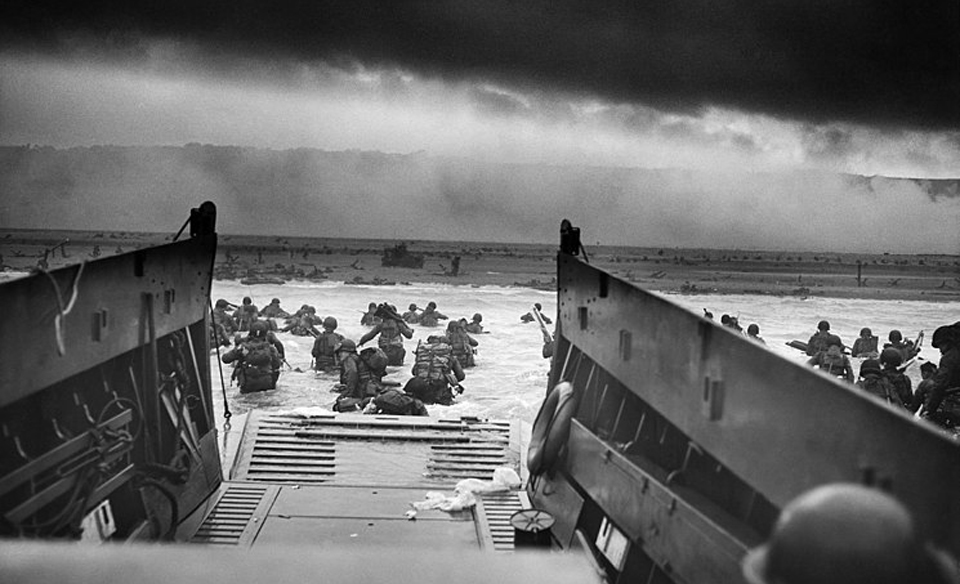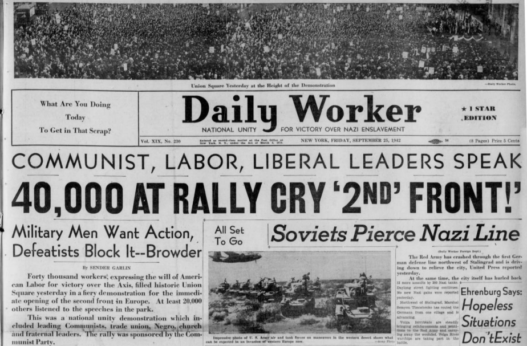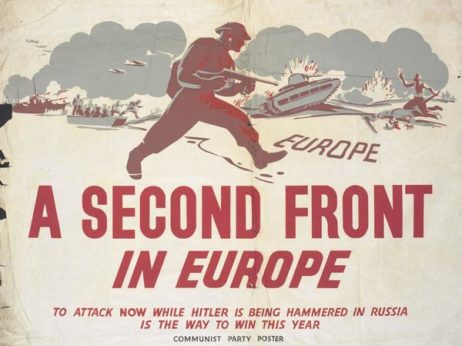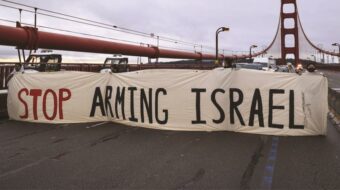
June 6, 1944 was D-Day, the day the U.S. and western Allied forces landed on the beaches of Normandy in France, opening up a second front against the Nazis in World War II. For the 74th anniversary commemoration, there have been numerous televised and printed memorials of that day when brave Americans lost their lives establishing a crucial beachhead in Europe, signaling the beginning of the end of Nazi terror in Western Europe.
During the Morning Joe Show on MSNBC this morning, the commentators talked about how, in the middle of what they called “the American Century,” the U.S. “selflessly” came to the rescue of the people of Europe, bringing World War II to a victorious end. The U.S. was credited by the commentators with shutting down the concentration camps and freeing the Jews of Europe.
Sadly, their comments are in line with the only notion many Americans have of World War II—images of U.S. soldiers saving people in European villages after landing in Normandy, fighting in Iwo Jima, and a stern-faced General Dwight D. Eisenhower surveying maps with his British counterparts.

They never picture how almost every building, from the biggest factory to the smallest village home, from the western border of the USSR all the way to Moscow was a smoldering ruin. They don’t picture what America would look like if one destroyed absolutely every bit of productive capacity from the East Coast all the way in to the Mississippi River. (That’s the equivalent of what the Nazis did to the Soviet Union.)
If the truth matters for anything at all these days—and hopefully it still does—we need to remember the real picture. Yes, Americans played a heroic role in the battle against fascism in Europe. The truth, however, is that from 1941 onward, the Soviet Union bore the brunt of the struggle that ended in the defeat of Hitler. While the figures are not precise, there is no disputing that as many as 100 Soviet soldiers died fighting Hitler for every one U.S. soldier who was killed.
Totally accurate is the assessment of the British historian, Max Hastings, that the Red Army was the main engine of the destruction of the Nazis.
The Soviet Union lost more than 26 million women, children, and men in the battle against fascism. Over 75 percent of Germany’s losses were sustained fighting the Soviet Union.
The historic battle of Stalingrad was a house-to-house, room-to-room epic battle of proportions far beyond anything ever fought on the western front that was opened in Europe on D-Day.

MSNBC’s crediting of the U.S. with shutting down the concentration camps and freeing the Jews was also inaccurate. Several camps in western Germany and France were liberated by U.S. troops. Hitler had decided, however, that the Germans needed “living space” and that the way to grant them this was to eliminate millions of Jews living east of Germany and millions of Slavs living in Poland, Russia, and elsewhere to the east. It was the Red Army that shut down most of vast network of concentration camps the Nazis had set up in Europe.
General George S. Patton, the U.S. general who was just outside of Weimar, Germany at the end of the war, refused the call of Buchenwald concentration camp inmates who wanted to coordinate their uprising in the camp with his arrival. He wasn’t interested in freeing a concentration camp full of communist prisoners, he said. The prisoners had to liberate themselves and did so before Patton got there.
It is important that on the anniversary of D-Day we honor the Americans who died fighting fascism, but it is also important the we understand the truth that the Soviet Union, a socialist country, played such a crucial and critically important role. Ultimately, humanity was saved in the 20th century because of the cooperation between countries with different social systems. It’s a lesson we should all remember, and one that U.S. leaders of today would do well to also learn.












Comments